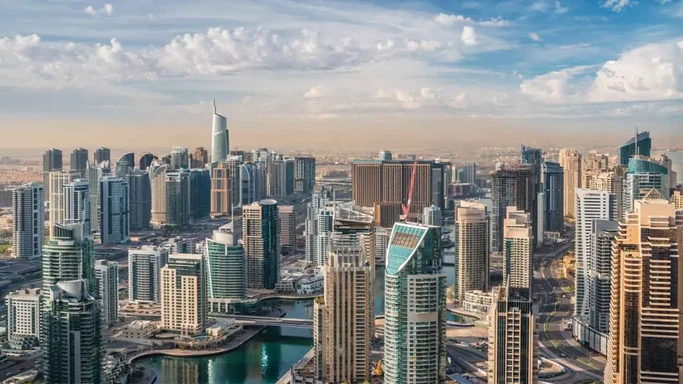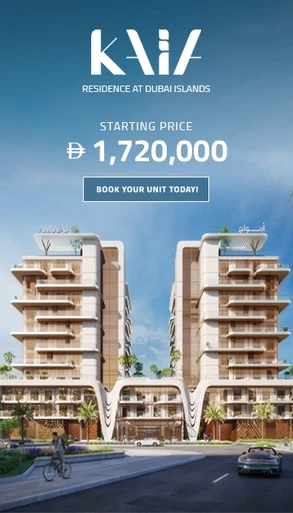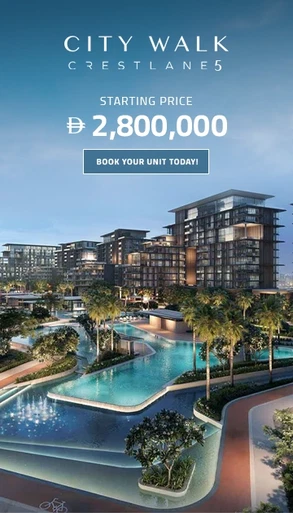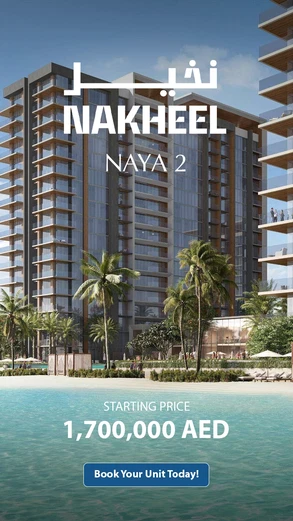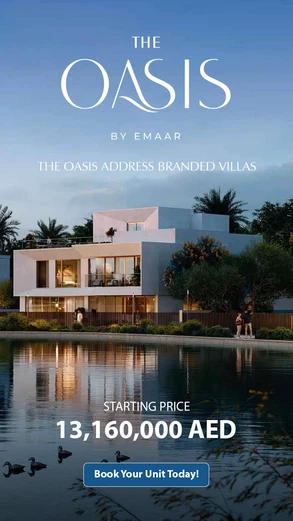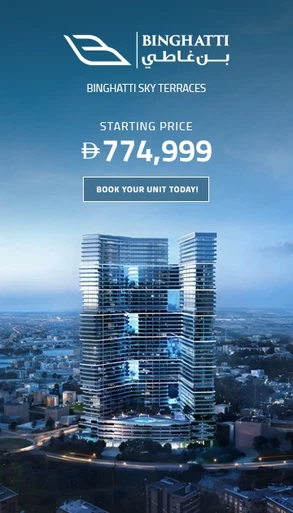The commercial property market in Dubai has expanded at an unparalleled rate, making the emirate a global commercial hub. Thanks to its strategic location, investor-friendly regulations, and world-class infrastructure, multinational firms, entrepreneurs, and institutional investors have flocked to the region.
Such qualities make Dubai an attractive marketplace for commercial real estate: with a burgeoning foreign direct investment and vibrant business ecosystem, it aspires to be a world-class destination.
Yet, this swift growth has brought up many challenges that must be navigated carefully to promote sustainable development. As a result, the demand for premium office spaces has grown, with a supply-demand imbalance and a rise in rental costs.
Utility bills occupy a big part of monthly operational costs, along with service payments, which contribute to the financial burden placed on businesses, especially small and medium enterprises (SMEs). The market is further complicated by infrastructure strain, changing regulatory requirements, and regional competition.
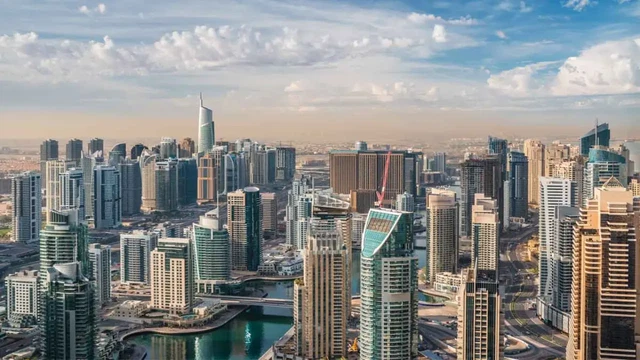
Challenges of Dubai Commercial Property Market
Meanwhile, developers and investors are facing new challenges in terms of environmental concerns and the necessity for digital transformation. Geopolitical uncertainties, workforce retention issues and stricter health and safety regulations will also continue to influence the commercial property landscape.
In this blog post, we look at the biggest challenges facing Dubai commercial property market today, sharing brief details about each issue. Thus, an appreciation of these challenges will enable stakeholders to strategize their solutions to sustain growth and keep Dubai at the forefront of global commercial real estate in the long run.
1. Supply-Demand Imbalance
There has been a big increase in demand in Dubai’s commercial property market, especially for offices. The economy is on the rise, with foreign direct investment pouring in to fund ventures and new companies. The density of the city is increasing, and so is the demand for prime office real estate.
Surging Office Space Demand
Dubai witnessed 2,972 office sales transactions in 2024, reflecting a year-on-year growth of 3%. Their total value stood at AED 6.5 billion, a significant increase of 37% from last year. This reflects an increasing appetite for commercial real estate, especially from international firms and companies in the region aiming to set up or expand in Dubai.
Growth in Registrations of Businesses
70,000+ new companies registered with the Dubai Chamber of Commerce in 2024, which is the primary catalyst for the spike in demand. These businesses need office space, meaning there’s competition for top, premium sites. On the other hand, there has been an imbalance in the market between the demand for high-quality commercial properties and the available supply.
Grade A Office Shortage
Grade A offices, which are premium office spaces, are in short supply. Premium spaces are a top priority for many businesses, owing to their strategic locations, modern amenities, and best infrastructure. Yet scarce availability has made many companies unable to compete for existing leases, with many instead renewing at much higher rates than moving elsewhere.
Impact on Rental Prices
This imbalance between the supply and the demand has driven the demand for rental prices higher, thus increasing the cost for businesses to acquire prime office space. Lease renewals are substantially, if not completely, higher for the tenant, simply because moving to other spaces is either unrealistic or extremely costly.
2. Rising Operational Costs
The commercial sector in Dubai is facing rising operational costs as business activity increases, the population grows, and the cost of living rises. Although the capital is still a key location for global corporations, cost control is increasingly becoming an issue, especially for small and medium-sized businesses (SMEs).
Increasing Cost of Living
The surge in living expenses is due to Dubai’s growing popularity as a business and lifestyle destination. Dubai was the 15th-costliest city in the world in 2024, according to Mercer’s Cost of Living Index, up from 22nd place in 2020. The added financial strain for businesses doing business in the city is climbing housing costs, escalating utility prices, and soaring goods and services prices.
Escalating Office Rents
The growing demand for Grade A office spaces has urged rental prices to rise further. Only a handful of market areas can afford rent, and those are the high-demand locations, meaning that businesses must spend extra to be in the right spots, which can be an additional strain on their entire operational budget.
Increased Business Expenses for SMEs
In contrast to SMEs, which must make a number of choices to control growing costs, large corporations are able to pass on rising costs to customers:
- Cost of renting offices and general utilities
- More expensive salaries to get talent in an expensive job market
- Regulation fees due to compliance and business licensing
3. Infrastructure Strain
As the city continues to draw businesses and expatriates, Dubai's rapid urbanization, to an extent, has posed considerable infrastructural challenges. Traffic congestion, overburdened public transport, and rising demand for utilities have become dominant issues in recent times, with the rise in population and commercial activities.
Exclusivity in Transportation and Traffic Congestion
- Dubai has its fair share of traffic, especially in the business districts of the emirate, such as Downtown Dubai and DIFC alongside Business Bay area if you have to use the road network.
- Ridership has also been better on Dubai Metro and bus services, putting pressure on public transport capacity.
- Supplementary road expansion projects, including the Dubai Traffic Improvement Plan, are in place but take time and money to complete.
Burden on Utilities and Public Services
- Commercial developments are straining Dubai’s utility infrastructure, with demand for electricity and water rising in tandem.
- The generation of waste has increased, which has led to the government focusing on sustainable waste management solutions.
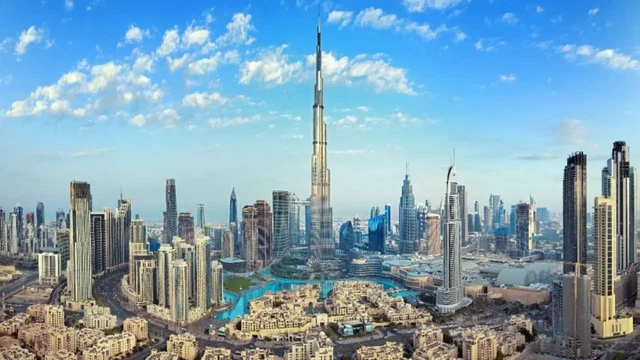
4. The Challenges of Market Proximity
Dubai’s commercial property market is in growing competition from nearby cities such as Abu Dhabi, Riyadh, and Doha. In response, these markets are aggressively courting businesses and investors with competitive pricing, better infrastructure, and pro-business regulations.
The Growing Commercial Market of Abu Dhabi
- In 2024, Abu Dhabi’s office occupancy rates spiked to 88%, indicating strong demand.
- Renting costs rose 15% year over year, but it was a more affordable option for companies compared to Dubai.
- Abu Dhabi Economic Vision 2030 emphasizes socio-economic development and growing commercial real estate investments.
Increasing Competition From Doha and Riyadh
- Riyadh’s Vision 2030 initiative is intended to transform the Saudi capital into a global financial center that draws multinational corporations.
- Fueled by post-World Cup investments, Doha's expanding commercial real estate market provides benefits like tax-free zones and reduced rental prices.
Effect on the Dubai Commercial Real Estate
- Investment Diversion: Competing leasing costs in nearby cities could lure companies out of Dubai.
- Oversupply of Office Space: Increased vacancy rates and rental price adjustments may occur in Dubai if businesses decide to relocate.
5. Regulatory Adherence and Transparency
With changing regulations regulating Dubai’s commercial real estate sector, compliance remains one of the main challenges for investors and businesses. In line with the government’s moves to improve transparency and efficiency, there is an existing market for these reforms, but regulatory complexity still looms large.
Frequent Policy Changes
- Dubai’s real estate laws are constantly being updated, meaning that businesses must remain on alert to comply.
- New compliance requirements are arising from the introduction of corporate tax (9%) in 2023 and more stringent regulations on property ownership.
- Dubai Land Department (DLD) regularly updates property laws, and they may affect lease agreements and ownership structures.
Real Estate Transactions and Ownership Rights
- Commercial property investments are limited as foreign investors are allowed to purchase properties only in select freehold zones.
- All lease agreements in Dubai must be registered with the Emirate's Ejari tracking system to provide them with legal standing, but in turn, they require passing through a few bureaucratic hoops.
Anti-Money Laundering Law (AML) Regulations
- Dubai’s AML legislation has also become stricter in that any property sale exceeding AED 55,000 must be reported to local authorities
- Noncompliance could lead to fines of up to AED 5 million.
Increased Transparency
- The REST platform digitizes real estate transactions and mitigates the risks of fraud.
- The more widespread use of blockchain technology is intended to improve the transparency of title deeds and transactions.
This happens only if you are familiar with the law and comply with it, as it is a complex regulatory framework. Staying informed on new laws, leveraging digital platforms, and ensuring financial transparency can protect a business from the expense of legal recourse.
6. Environmental Sustainability
Dubai’s swift urban development has made the city a global business center. But this growth has also challenged the sustainability of the environment, particularly in terms of carbon emissions, energy use, and water consumption. And so, the government and developers center around sustainable solutions that provide economic advancements while still being ecologically responsible.
High Carbon Footprint
- Energy-hungry buildings and dependence on desalinated water mean that Dubai has one of the highest carbon footprints per capita.
- Commercial properties are responsible for a large percentage of greenhouse gas emissions, used mainly for air conditioning and lighting.
- The Dubai Supreme Council of Energy states that 80% of electricity consumption is by buildings.
Water Scarcity
- Desalination, which is energy-intensive and affects marine ecosystems, is used by the UAE.
- Greywater recycling, a sustainable water management strategy, is being promoted.
Generation and Treatment of Waste
- More than 8,000 metric tons of waste are produced in Dubai every day.
- It wants to cut landfill waste by 75% by 2030 through recycling efforts.
Sustainability Initiatives and Legislation
- The Dubai 2040 Urban Master Plan emphasizes green spaces and energy-efficient buildings.
- The Net Zero by 2050 strategy promotes solar panels, smart water systems, and LEED-certified designs for developers.
- Masdar and DEWA (Dubai Electricity & Water Authority) are also pushing ahead with clean energy initiatives such as the Mohammed bin Rashid Al Maktoum Solar Park.
Even as sustainability becomes a key focus, businesses must orient their organizations toward making green building integral to be better positioned to promote regulatory compliance and attract environmentally aware investors.
7. Technological Integration
Technological integration is a major factor in Dubai's commercial real estate industry's success as the global business environment grows more digital. Smart technologies allow owners to increase operational efficiency, enhance tenant experiences, and remain competitive in the long run.
Smart Building Management Systems (BMS)
- Commercial properties in Dubai are using AI-supported BMS for energy efficiency, predictive maintenance, and real-time monitoring.
- Smarter sensors enable the reduction of energy waste, a decrease in cost, and an improvement in sustainability.
- The use of smart grid technology by DEWA enhances the capacity for efficient use of energy.
PropTech and AI in Real Estate
- PropTech solutions like AI-powered market analysis tools are supporting investors in making informed choices.
- Automated property management software simplifies the processes of leasing, maintenance tracking, and tenant communication.
- Dubai Land Department (DLD) has launched blockchain-based transactions that enhance transparency in property deals.
5G and IoT-Enabled Workspaces
- The three (5G enhances smart office ecosystems) allow for remote work at high speeds and automation.
- Smart IoT-inspired buildings also provide superior security through biometric access control and AI-driven surveillance.
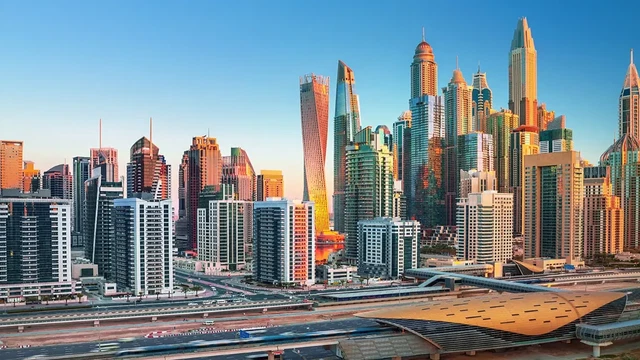
8. Retaining and Attracting Talent
The international business environment in Dubai attracts professionals in all fields. However, they continue to struggle with attrition & acquisition because of the higher cost of living and greater competition for skilled workers. To attract and retain top talent, companies need to implement strategic workforce management techniques.
Talent Hiring Challenges
1. High Cost of Living
- In Mercer’s 2024 Cost of Living survey, Dubai was ranked the 15th most expensive city in the world.
- They struggle to maintain a comfortable lifestyle on a daily basis due to high rental prices.
2. Competition for Skilled Workers
- Growing demand is making niche talent scarce, especially in sectors like finance, real estate, and tech.
- Additionally, companies have to provide competitive salary packages, housing allowances, and career development opportunities to lure the most qualified candidates.
Strategies for Business Retention
1. Enhanced Employee Benefits
- Companies are increasingly providing flexible work schedules, healthcare benefits, and education allowances for employees’ children.
- To keep key employees, some companies offer long-term incentives like stock options and Golden Visa sponsorship.
2. Career Growth and Training
- Investing in professional development programs through certification and training helps retain employees.
- Upskilling programs in line with the Dubai Smart Vision 2030 keep professionals up to date and competitive.
9. Geopolitical Factors
The commercial property market in Dubai is also subject to regional geopolitical developments that may affect investor confidence and economic stability. These challenges require that businesses and investors remain informed and agile in the face of dynamic operational conditions.
Region and Regional Stability
- Geopolitical tensions in the Middle East are weighing on market sentiment. Fluctuations in foreign direct investment (FDI) can arise due to any regional instabilities.
- The UAE’s neutrality in international conflicts has helped sustain economic resilience.
International Economic Sanctions and Trade Practices
- Investor sentiment, meanwhile, is shaped by the shifting landscape of international trade agreements, sanctions, and oil prices.
- Dubai’s status as a regional trade hub leaves it susceptible to fluctuations in the global economy.
10. Health and Safety Regulations
Dubai commercial properties made health and safety regulations a top priority post-pandemic. More punitive compliance measures protect the health and safety of residents and retain appeal of office and retail spaces.
Stricter Standards for Compliance
- Dubai Municipality and Dubai Health Authority (DHA) have also implemented stringent safety measures for ventilation, sanitation, and workspace design.
- Regular air filters, along with cleaning of HVAC systems, maintaining HVAC components, and upkeeping common areas, ensure that the indoor air quality (IAQ) is compliant with the IAQ regulations as well as fire safety codes.
Fire Safety and Emergency Preparedness
- New structures must have automated fire suppression systems, the exit doors must open outward, and there must be a clear evacuation plan.
- To adhere to the UAE Fire and Life Safety Code, developers need to perform regular safety audits.
Closing In
Dubai’s commercial property market is at a crossroads, with its rapid growth tempered by some dire problems. Demand for commercial real estate in the city is high due to strong economic growth and rising business activity, but supply constraints, rising operational costs, and plummeting infrastructure have kept the hurdles high. There is also competition from nearby markets, changing regulatory frameworks, and requirements for environmental sustainability that require strategic solutions.
The stakeholders have to embrace innovation and proactive planning to stay a global top commercial hub. With investments in smart technology, sustainable development, and infrastructure upgrades, we can transform these challenges into opportunities.
More importantly, protecting data privacy and imposing artificial intelligence norms will be hands-down and used to nudge investor confidence and ensure long-term maintenance of the market.
With the right approach, growth, innovation, and a conducive environment for business, Dubai can retain its strength in commercial real estate. By taking the right steps, the city will remain a magnet for investors, businesses, and entrepreneurs, cementing its status as a world-class commercial powerhouse.
Read More...
